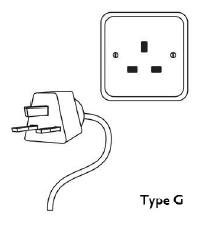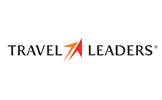IRELAND

Fun Facts
- Ireland is the home of the famous Blarney Stone; kissing it is supposed to give a person the gift of eloquent speech.
- Ireland is famous for Guinness beer, which has its brewery at St. James’ Gate in Dublin.The failure of the potato crops in 1845 led to what is known as the great famine, which lasted for five years and is known to have caused Irishmen and women to leave the country to settle elsewhere.
- Tracing Irish genealogy prior to 1922 is difficult because the records from the 14th century to 1922 were destroyed in a fire during the Irish Civil War.
Céad Míle Fáilte … Ireland offers the visitor one hundred thousand welcomes. This is truly one of the most hospitable countries on earth; to the Irish a stranger is just a friend they haven’t met yet! Among the world’s most ancient cultures, Ireland has retained the best of its past, whilst striding into the 21st century.
People have inhabited Ireland since around 6000 BC, leaving behind gold ornaments and stone monuments that have captivated the imagination of historians worldwide. Celtic tribes, from whom most Irish people can trace their roots, arrived on the island around 600 BC. Tradition maintains that St. Patrick arrived on the island in 432 AD and worked to convert the island to Christianity. In the years that followed, Irish scholars excelled in the study of Latin, Christian theology, and the arts of manuscript illumination, metalworking, and sculpture —evident in the intricate, carved stone crosses that dot the island.
Nordic invasions, which began in the late 8th century, were finally ended when King Brian Boru defeated the Danes in 1014. English invasions began in the 12th century and set off more than seven centuries of Anglo- Irish struggle, marked by fierce rebellions and harsh repressions. Religious freedom, outlawed in the 18th century, was restored in 1829. But this victory for the Irish Catholic majority was overshadowed by the Great Potato Famine from 1845 to 1848 that led to mass emigration. Today, millions around the world are proud to boast their Irish roots.
A failed 1916 Easter Monday Rebellion touched off several years of guerrilla warfare that in 1921 resulted in independence from the UK for 26 southern counties; six northern counties (Northern Ireland) remained part of the United Kingdom. In 1948, Ireland officially withdrew from the British Commonwealth. In modern times, the Irish government has sought the peaceful unification of Ireland and has cooperated with Britain against terrorist groups. Ireland joined the European Community (now the EU) in 1973 and continues to grow in stature and strength as a young, independent country.
The Irish have a saying for every drop of rain, and a joke for every blade of grass! Few countries have produced such weavers of the spoken and written word. Oscar Wilde, James Joyce, W.B. Yeats and George Bernard Shaw are but a few of the master story-tellers to emerge from the Emerald Isle. If poetry is in the soul, then music is on every breeze. Ancient castle halls echo with the sounds of harp and flute. From Tralee to Tipperary and from Dublin to Galway Bay, you’ll hear the strains of traditional instruments as the generations come together to celebrate craic agus ceal (music and fun). Intricate rhythms are drummed out on hand- held bodhrans as Irish dancers match the tempo with their mesmeric stepping… the sound is the heartbeat of Irish music. Dublin, the Fair City, dating from Viking times, is one of the most vibrant capitals in the world, famous for its opulent Georgian architecture and its vast selection of friendly pubs. Learn how a pint of Guinness should be poured, or try an Irish coffee.
VISAS, PASSPORTS, AND OTHER ENTRY REQUIREMENTS
Visas to Ireland are not required for US citizens. If you hold a passport from another country, please check with your local consulate about requirements for travel to Ireland. All passengers traveling internationally are required to have a passport. Please carry proper identification (your passport) on you and do not leave it in your suitcase or hotel room.
It is advisable to carry your passport with you at all times.
COUNTRY CODES
The country code for Ireland is 353. When calling to Ireland from overseas, dial your international access code (011 from the US/Canada), followed by the country code, area code, and phone number. Phone numbers in Ireland are eight digits in length. Dialing from the US/Canada: 011 353+#+### ####.
CURRENCY
The official currency of Ireland is the Euro.
Bank hours 9 a.m. to 4 p.m., Monday through Friday. In Dublin most banks stay open until 5 p.m.
Euro coins differ according to country, but they can be used in any Eurozone state. Bank notes are of uniform EU design (depicting European architectural styles throughout seven ages, from Classical to Modern times).
1 EURO (€) = 100 Cents (c)
- Banknote denominations: €5, €10, €20, €50, €100, €200, €500
- Coin denominations: 1c, 2c, 5c, 10c, 20c, 50c, €1, €2
For the most current exchange rates, please go to our website at Globusjourneys.com/Currency.
Credit cards are widely accepted (mostly Visa and MasterCard), and you should have no trouble using them. Smaller shops may ask you to pay in cash or have a minimum amount required to use a credit card.
BUDGETING AND SHOPPING

- The approximate cost of a soft drink/mineral water/coffee is €3.50.
- An average lunch consisting of a salad or sandwich and a soda or water starts at approximately €10. Dinner at a mid-range restaurant with dessert and a non-alcoholic beverage starts at approximately €30.
Shopping specialties: Aran sweaters, Donegal tweed jackets, Waterford crystal.
Counterfeit and pirated goods are widely available; be aware that under local law transactions involving such products may be illegal, and bringing them home may result in confiscation and fines.
Sales tax or VAT (value added tax) is included on price tags. To obtain VAT refunds (which may take up to three months to process) special forms usually have to be stamped by Customs; please ask for a tax-free shopping form with each purchase and follow the instructions for completion. Customs import charges on items shipped home are not included in purchase prices.
TIPPING
Tipping in pubs for drinks ordered at the bar is not customary. Some restaurants include a service fee, which covers the tip. If not, a tip of 10% is sufficient
Taxi drivers generally do not expect tips, but rounding up the fare to the nearest Euro is acceptable if you would like to tip.
Tip hotel staff €1 for room service.
ELECTRICITY AND ELECTRICAL OUTLETS
Outlets
Voltage for outlets is 230V. North American voltage is generally 110V. Therefore, you will need a converter for your travels. Adapters will be necessary to adapt your plug into the outlet, but these may not convert the voltage, so both devices are necessary. Irish facilities have 3-prong outlets with two flat prongs in line and one perpendicular, which look like:

TEMPERATURES
Ireland has warm summers and cooler winters. Spring and fall are mild. Clouds make an appearance in the Emerald Isle’s skies year-round. Pack lightweight clothing for the summer and warmer, wind-proof items in winter. Rain gear is essential year-round. To help you plan, below are average low and high temperatures for Ireland.

To convert to Celsius, subtract 30, then divide by 2. While not exact, this simple formula will give a close estimation.
FOOD SPECIALTIES
Guinness, Irish coffee, seafood, traditional dishes using bacon and cabbage, and Irish stew.
FEW WORDS OF THE LOCAL LANGUAGE
Irish Gaelic (pronunciation in parentheses):
![]()
Good Morning: Dia duit ar maidin (Djiah gwich air mahdjeen), Good bye: Slán (Shlahn), Thank you: Go raibh maith agat (Guramahhagut), Please: Más é do thoil è (Mushayduh-hulyah), Cheers: Sláinte (Shlandja).
U.S. DEPARTMENT OF STATE COUNTRY INFORMATION
Additional country-specific information for US citizens can be found on the US Government’s website www.travel.state.gov. Here, you can find the most up-to-date information about destination descriptions, passports/visas, safety and security, transportation, travel local laws, alerts/warnings, vaccinations, and more. For citizens of other nations, we recommend you consult your local consulate for travel information, regulations, and requirements.









